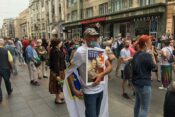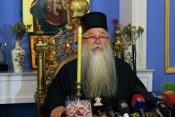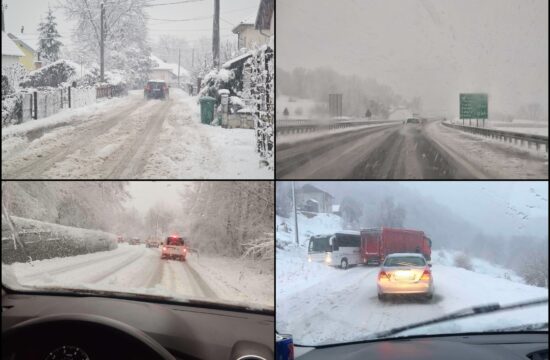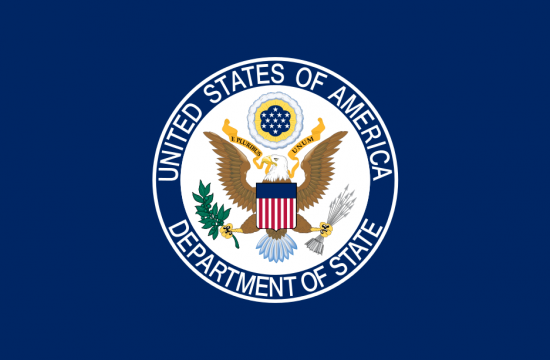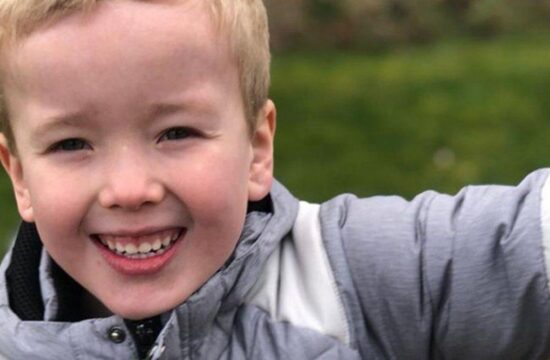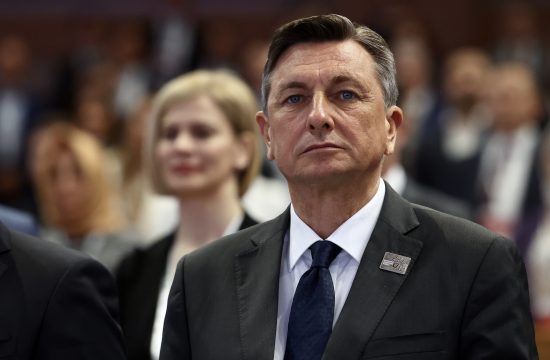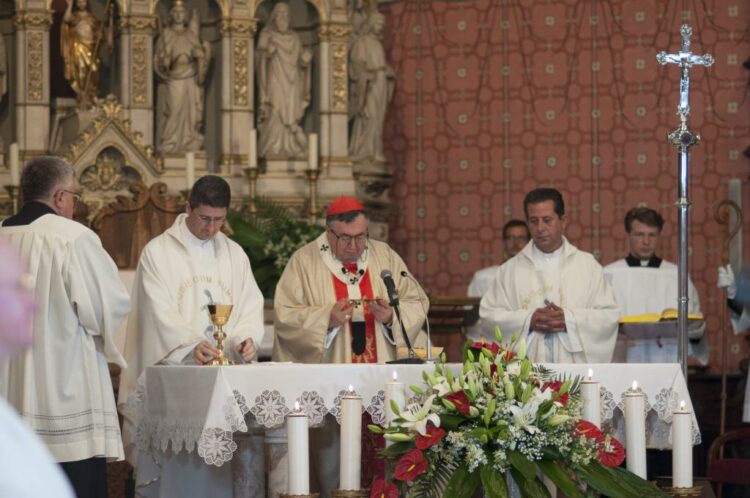
Bosnia’s cardinal who last weekend led a controversial Mass for Axis-allied Croatian fighters who were killed by Yugoslav Partisans in Bleiburg in 1945 said on Wednesday that he was hurt by all the threats and harassment he had to endure in Sarajevo’s “communist democracy.”
“I was asked to give up on the Mass to calm the situation down,” Cardinal Vinko Puljic told Radio Mir Medjugorje, referring to the uproar the Mass prompted among Sarajevo’s antifascists.
“I said that I did not cause the stir and whoever did, should calm them now,” Puljic said, adding that not everybody is being treated equally in Bosnia’s capital.
The Cathedral would have been full “would we have told the believers to come,” he said.
“We said that the Mass will be celebrated at home and that we will respect the instructions of the (Civil Protection) headquarters. However, the other side and media that caused the stir had privileges,” he argued.
Puljic was referring to the thousands of people who took to the street on Saturday to protest against the mass despite instructions that large gatherings were banned. Meanwhile, only about 20 people attended that Mass in the Cathedral.
Puljic said he received “various threats” because of the Mass, adding “this is that communist democracy.”
“It was distressing, it hurt me a lot that at one moment everyone forgot how much I lived for and sacrificed for this city and country,” he said.
The Cardinal thanked the Head of the Islamic Community in Bosnia, Husein Kavazovic, for the way he reacted when the news about the Bleiburg Mass emerged.
“He knows well that we live here together and have to fight together,” he said of Kavazovic.
But Puljic also said he was “surprised with how much hatred” the head of the Serb Orthodox Church has spoken about the Mass.
“I don’t want to respond in the same manner,” Puljic said and added that “everyone should be cleaning his own yard and not dump their trash into the neighbour's yard.”
Amid a Yugoslav army offensive aimed at defeating pro-Nazi and anti-communist forces, allegedly thousands of mostly pro-fascist Croat soldiers and their families fled in 1945 toward Austria to seek help from the British army, only to be turned back by the Brits right into the hands of anti-fascists.
In and around the Austrian town of Bleiburg, thousands of the so-called Ustashas were killed.
The Yugoslav forces saw the slaughter they committed as punishment for the tens of thousands of Jews, Serbs, Roma and anti-fascists killed by the Ustasha during WWII.
After the dissolution of Yugoslavia, Croatia began commemorating the Bleiburg victims with a large gathering near the Austrian town every year but it was cancelled this year due to the coronavirus pandemic.
The organisers of the event, the Honorary Bleiburg Platoon, said it will be held in different cities instead, among them in Sarajevo.

